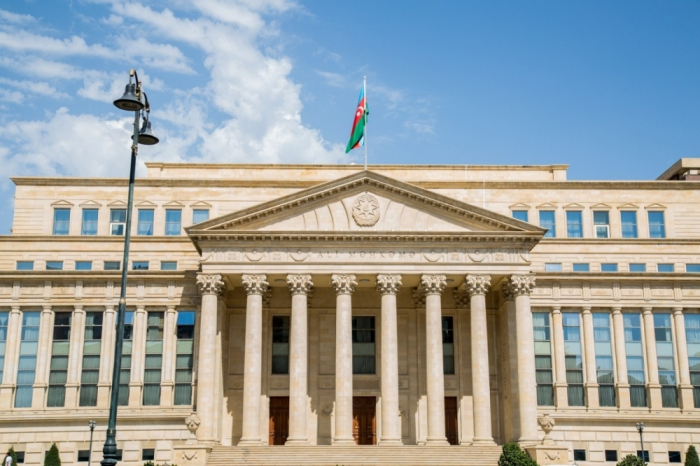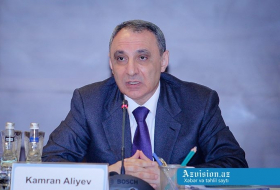Signed by President of the Supreme Court Ramiz Rzayev, the statement reads: “On 27 and 28 October 2020, the armed forces of the Republic of Armenia, by breaching the formally declared humanitarian ceasefire once again, fired at a densely populated city of the Republic of Azerbaijan, the city of Barda, which is located approximately 40 kilometers away from the active military zone on the territory of Azerbaijan, using a Smerch multiple launch rocket system with internationally banned cluster munitions.
It is reported that 26 civilians, including children, were killed, more than 83 sustained injuries of various degrees as a result of the deliberate and indiscriminate attacks against the Azerbaijani civilian population. In addition to the reported civilian casualties, serious damage was inflicted upon the civilian infrastructure. This latest series of deliberate and indiscriminate attacks against the civilian population in Barda has been widely documented in reports published by Amnesty International, Human Rights Watch and other human rights watchdogs.
Since the beginning of the Armenian attacks against Azerbaijan on 27 September 2020, 91 civilians have been killed, more than 400 sustained injuries of various degrees and over 3,000 civilian objects, including private property, have been destroyed or damaged in various cities and settlements of Azerbaijan by the Armenian armed forces.
It is well reported that the armed forces of Armenia to this day continue shelling the Azerbaijani civilian population from its territory and the occupied territories of Azerbaijan. The government of Armenia provides military, political, financial and other material support to the criminal regime on the occupied territories of Azerbaijan, including sending its armed forces, military equipment and so-called “volunteers” – in fact, mercenaries – to the sovereign territory of Azerbaijan.
Given the overwhelming weight of evidence, the Government of Azerbaijan submitted a request to the European Court of Human Rights on 27 October 2020 calling upon Armenia immediately to, in addition to ceasing the above illegal measures, withdraw its armed forces and militants illegally stationed on the territory of the Azerbaijan and to refrain from pursuing the policy of hatred towards Azerbaijan and its nationals.
In turn, the Government of Azerbaijan has declared that, at all times, it abides by the fundamental principle of international humanitarian law, which requires armed forces to respect the absolute ban against targeting civilians or carrying out attacks that indiscriminately harm civilians. The armed forces of Azerbaijan have affirmed their commitment not to retaliate back against the civilian population, but rather deliver major blows to the legitimate military targets of the enemy on the battlefield.
As a result of the exercise of the inherent right of self-defense in full compliance with Article 51 of the United Nations Charter with a view to restoring the territorial integrity of its internationally recognized borders, the Azerbaijani armed forces have liberated a number of Azerbaijani cities and settlements in recent weeks from the Armenian occupation, including the cities of Jabrayil, Fuzuli, Zangilan and Gubadli.
We call upon the international community to strongly condemn the terrorist attacks against the city of Barda and other residential settlements of Azerbaijan. Those who have perpetrated these heinous crimes against humanity, including the unprecedented massacre committed against the Azerbaijani civilian population in the town of Khojaly in February of 1992, must be immediately apprehended and brought to justice.
We stand by the efforts of the Azerbaijani Government to restore its territorial integrity and to implement the explicit terms of the United Nations Security Council Resolutions 822, 853, 874, 884 of 1993, which recognize Nagorno-Karabakh and adjacent districts as an integral part of Azerbaijan and demand for the immediate, complete and unconditional withdrawal of the armed forces of Armenia from the occupied territories of Azerbaijan.”
More about:
















































